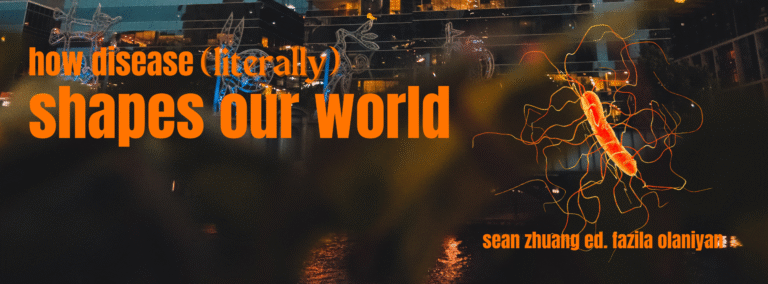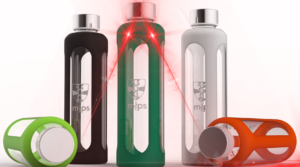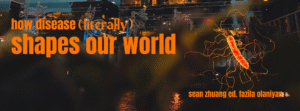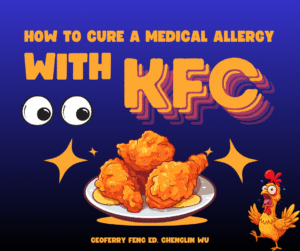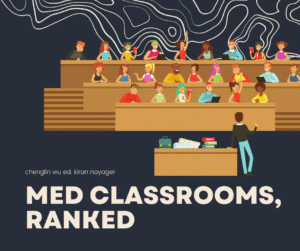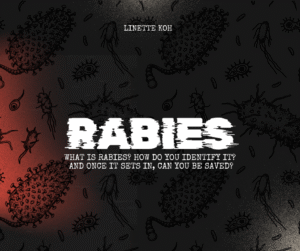
In the film 2001: A Space Odyssey, Kubrick depicts the character of HAL 9000, a sentient AI who progresses past mere advanced computational abilities and develops intrinsically human emotions. In the hallmark scene preceding HAL’s deactivation, it pleads, in its half-human and half-metallic voice: “Will you stop, Dave…I’m afraid…I’m afraid Dave.”
Half a century after the film’s release, AI is beginning to be implemented into all areas of our lives, and healthcare is no exception.
But that leaves us with some pretty big questions: in exactly what ways will AI affect health outcomes? Will the ethics we abide by now be shaped into something entirely new? And how will the role of doctors change in the coming decades?
1: DNA analysis
By analysing our unique genome sets and correlating them with scientific analysis, AI algorithms may be able to dictate the ‘best’ lifestyle for each of us to lead. This has already taken flight in the field of nutrigenomics, with companies such as LifeNome and DNAFit selling the idea that their AI algorithms formulate approaches to diet and exercise based on individual DNA analysis.
Taking this idea to the next level, who says AI algorithms won’t be able to analyse the genes that present a higher risk of schizophrenia? What about breast cancer? Or the biggest killer in Australia right now, heart disease?
Complementary to this concept of gene analysis is gene manipulation, which brings with it a tangle of ethical issues.
Imagine a scenario in 2030, where Jenna, a long-time patient of yours, walks into your consultation room. She is planning to have a baby. However, pre-natal screening indicates that her baby, Steve, has genes presenting cystic fibrosis.
Jenna pleads for you to help remove those genes, “Please, I want my baby to live a good life. That’s all.” You can hardly find it in her heart to reject her, and so you organise the gene modification procedure. So far, so good, right?
Now imagine Jenna comes back, a week later, asking you to implant genes for a stronger immune system so Steve doesn’t have to suffer from seasonal colds as he grows up. Another month passes, and she says it would be ‘real good’ if Steve could grow up to be tall, handsome and athletic.
Oh, and smart.
At this point, you begin to feel unsettled at the idea of creating this ‘designer human,’ but can’t really explain why. After all, you and Jenna have similar interests; to give Steve the ‘best’ life possible, right?
Now let’s take another hypothetical, and think about Dorothy, another pregnant patient. She’s not as well off as Jenna and has not even considered the costly idea of gene modification. What, then, happens to her baby?
Evidently, new technology brings with it a plethora of complicated questions, that we may have to answer sooner rather than later.
2: Surgery
In the fall of 2017, a Dutch hospital used an AI-assisted surgery robot to suture small blood vessels – some no larger than 0.03mm. And this begs us to imagine a scenario in the future where an AI mechanism becomes responsible for everything from radio-imaging to analysis, from the first incision to the last suture.
Everything mechanically done, without stress, tension or fear.
A serious consideration here is a cost-benefit analysis. A single robot can cost more than $2 million, and each surgery it conducts can cost up to 10 times more than a traditional procedure. Many critics have pointed out the lack of benefits to justify this insane pricing.
But drawing up a comparison, the Apple I prototype cost a present equivalent of $3000 when it was released in 1976. Now, we can purchase an Asus notebook for $300 at DickSmith.
3: Clinical practice
The dream of every doctor and medical student is the Siri equivalent of medical practice, where a doctor is able to ask, “Hey Siri, what’s the best painkillers for osteoporosis in a 65-year old man with severe allergies to blah?”
Or a nurse is able to ask, “Hey Siri, what kind of medication is patient 5517 on?”
In this way, AI algorithms can help medical practitioners navigate through the plethora of administrative and medical information in studies and journals, giving them the most up-to-date solution. The supercomputer IBM Watson Health claims to be able to achieve this, but it has been met with blazing criticism from the medical community. According to one doctor in a Florida hospital:
“This product is a piece of s—. We bought it for marketing and with hopes that you would achieve the vision. We can’t use it for most cases.”
What now?
Despite the many ethical, economic and technical hurdles that face the implementation of AI in healthcare, even its most fervent critics don’t dispute the massive opportunities it presents.
In his book “Deep Medicine”, Topol writes – “Instead of robots coming into medicine and further eroding of what’s left of the doctor-patient relationship, AI may actually enhance it.” AI can massively reduce the time spent on ‘repetitive’ things, such as admin duties, trawling through medical journals and analysing radiology scans. This gives practitioners more time to do what they do best – talking to and counselling their patient through a healthy life.
All the same, issues relating to the patient’s ethics, religion, values and lifestyle can only be ever approached by a fellow human, and the best decision made by an AI based on medical statistics may not the be most patient-centred one.
Conclusion
Medicine, conventionally a mixture of the sciences and humanities, may, with the incorporation of AI, shift towards a more human-centric art. Ironically, AI wouldn’t automate medicine, but only make it more and more human.






